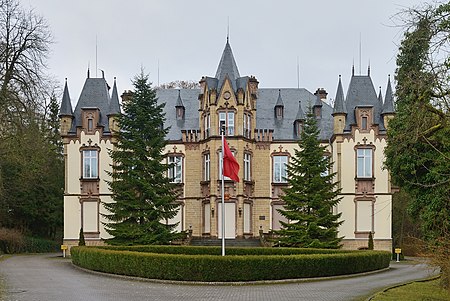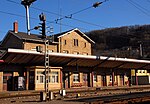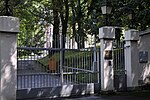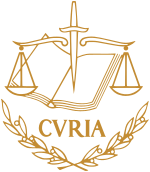Dommeldange Castle
Buildings and structures in Luxembourg CityCastles in LuxembourgDiplomatic missions in LuxembourgDiplomatic missions of ChinaLuxembourgian building and structure stubs

Dommeldange Castle (French: Château de Dommeldange; Luxembourgish: Schlass Dummeldeng) is located in Dommeldange, the most northerly quarter of Luxembourg City in the Grand Duchy of Luxembourg. Initially a private residence built for the owner of the local iron works, it is now the Embassy of the People's Republic of China.
Excerpt from the Wikipedia article Dommeldange Castle (License: CC BY-SA 3.0, Authors, Images).Dommeldange Castle
Rue Jacques de Deventer, Luxembourg Dommeldange
Geographical coordinates (GPS) Address Nearby Places Show on map
Geographical coordinates (GPS)
| Latitude | Longitude |
|---|---|
| N 49.636666666667 ° | E 6.1441666666667 ° |
Address
Rue Jacques de Deventer
2152 Luxembourg, Dommeldange
Luxembourg
Open on Google Maps








